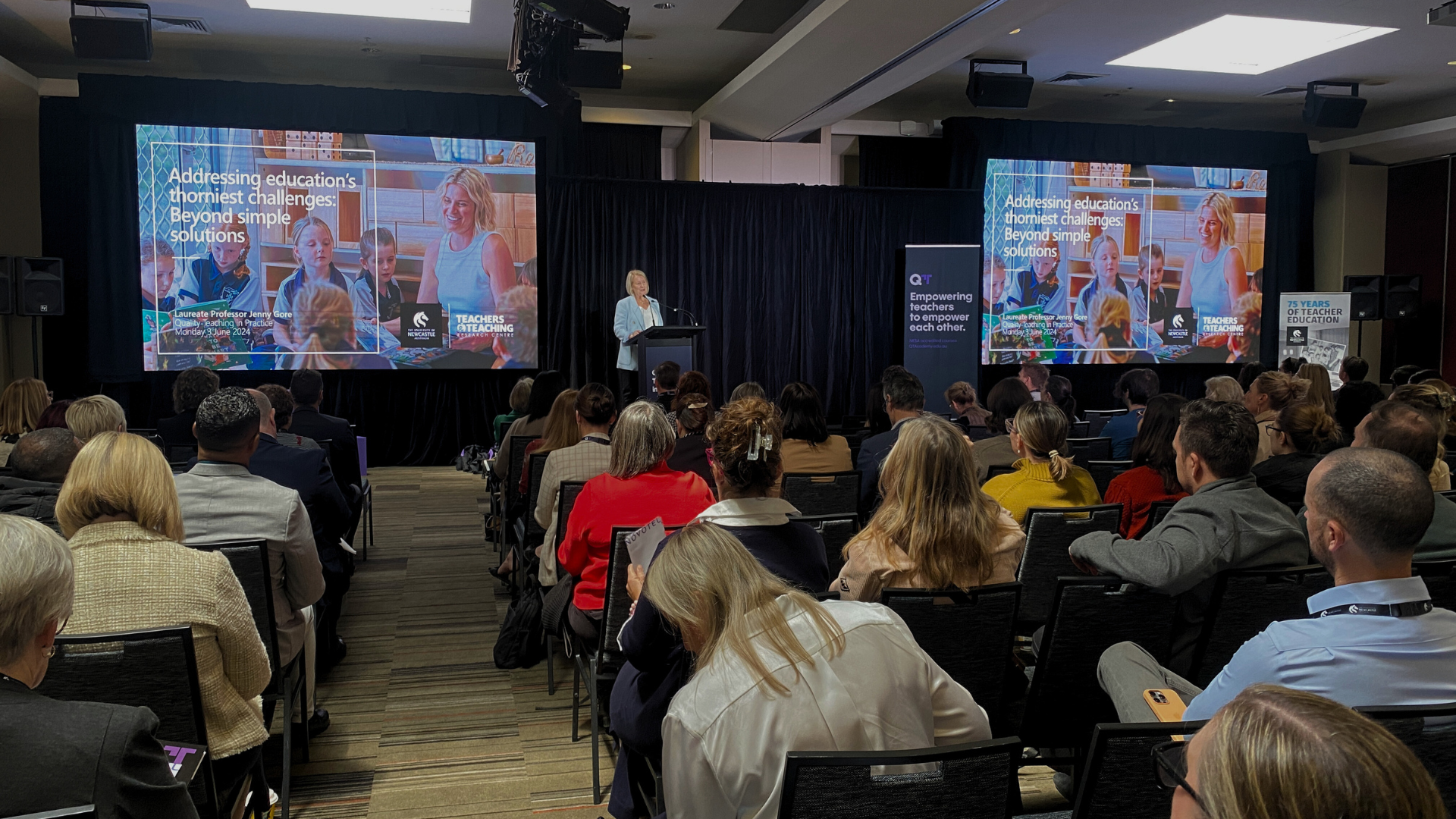Opening with inspiration
Thank you for a transformative experience.
That was how one teacher, who travelled all the way from South Australia to Sydney for the third annual Quality Teaching in Practice conference (QTiP24), summed up the two-day event. And they were absolutely right – QTiP24 was transformative.
QTiP24, which was held at the Novotel, Sydney Olympic Park on 3-4 June 2024, started strongly with a profound Acknowledgement of Country and a captivating vocal and dance performance by Aurielle Smith from Newtown High School of Performing Arts. Aurielle sang Cold Chisel’s Flame Trees with a chorus in Indigenous language and performed an original dance composition created to Walanbaa. A special thanks to The Art’s Unit for their support organising this showcase of amazing public school talent.
University of Newcastle’s new Chancellor, former high school teacher, politician, and Australian High Commissioner to New Zealand, The Hon Patricia Forsythe AM, then officially opened the conference. The Chancellor was followed by Laureate Professor Jenny Gore AM who delivered the opening keynote, Addressing educations thorniest challenges: Beyond simple solutions. In the address, labelled by delegates as “inspiring” and “extraordinary”, Jenny laid out the well-publicised challenges facing teachers and school leaders. She made a compelling case for the systemic adoption of the QT Model and QTR, backed by a decade of evidence, to address these challenges and have a positive impact on all schools, teachers, and students.
Dr Michele Bruniges AM provided the Day 2 opening keynote, Changing the equity outcome. In her address, Michele walked delegates through the data on how disadvantage is entrenched in our highly segregated education system. But turning to hope and inspiration, she identified how the transformative power of education can be harnessed through evidence-based practice and given the right conditions, enable profound change in young people’s lives.
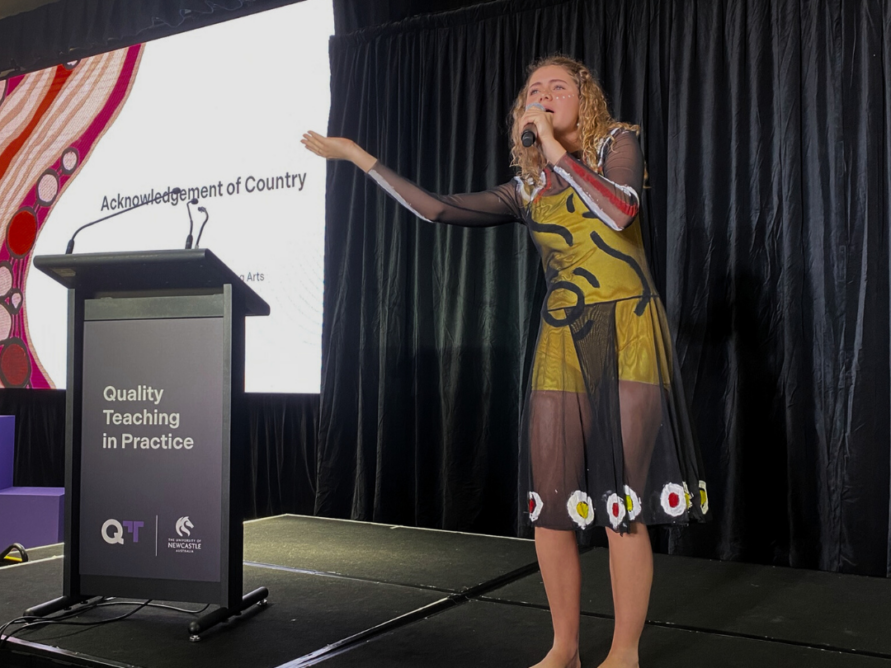
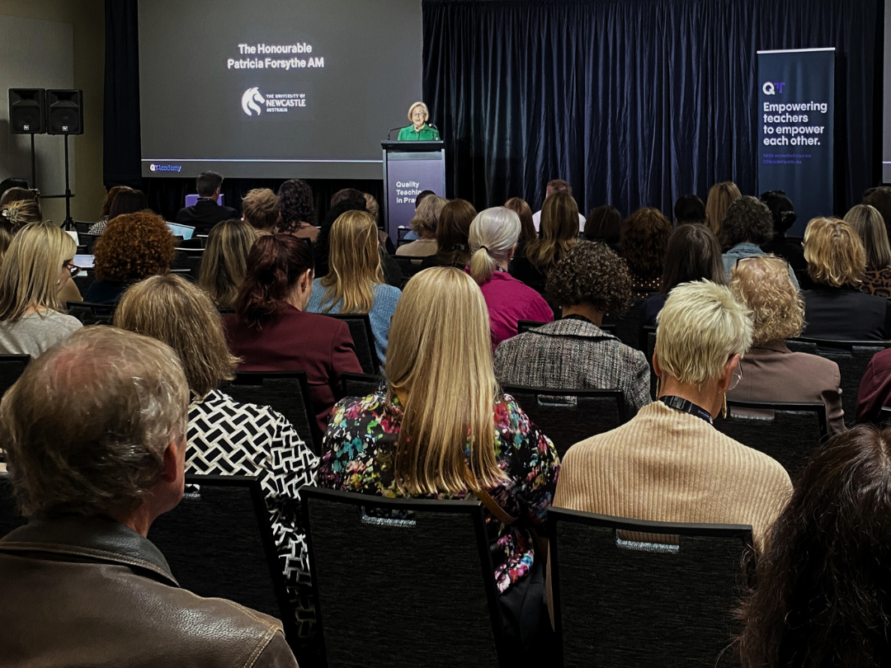

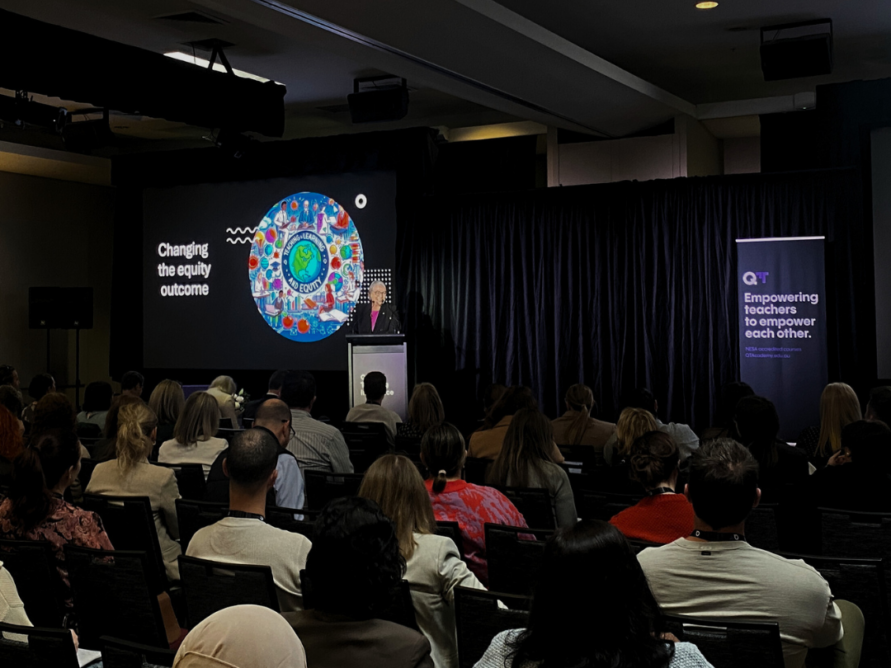
Engaging panels and invited speakers
For the first time, the QTiP conference program featured a series of invited speakers, who broadened the scope of the conference and provided diverse perspectives on a range of topics. Distinguished Professor Kathryn Holmes from Western Sydney University presented her research on supporting positive attitudes in STEM subjects. Former AITSL CEO and NSW Department of Education Chief Operating Officer, Mark Grant presented on the National Teacher Workforce Action Plan, with a focus on the actions led by AITSL. He also outlined the department’s new strategic plan. Steve Grant from Grok Academy unpacked generative AI and its implications for the classroom through simple and accessible anecdotes and metaphors, while Directors of Educational Leadership, Linda Langton and Meg Couvee enriched the conference with their perspective on transforming lives through learning with insights from the NSW Regional South School Performance Directorate.
As with previous years, the panel discussions were a highlight of QTiP24. The Data vs evidence panel, featuring Associate Professor Mark Rickinson (Monash University), Peter Riley and Belinda Cooper (Cessnock High School), and Dr Drew Miller (University of Newcastle), emphasised the importance of context-appropriate, research-based interventions and the necessity of supporting teachers and leaders in developing research literacy.
The Rethinking induction panel, featuring Kaitlin Heggen (Hambledon Public School), Mary Ryan (Catholic Schools NSW), Dr Fiona Longmuir (Monash University) and Dr Sally Patfield (University of Newcastle), discussed the critical role of induction for all teachers, advocating for increased support for schools to better this process. These discussions underscored the essential elements required to enhance teacher preparation and ongoing professional development.
Finally, renowned comedian, Anthony Ackroyd, closed Day 1 with a plenary session on the science of laughter. His performance was both entertaining and enlightening, offering teachers and school leaders a five-point plan for reducing stress through humour.
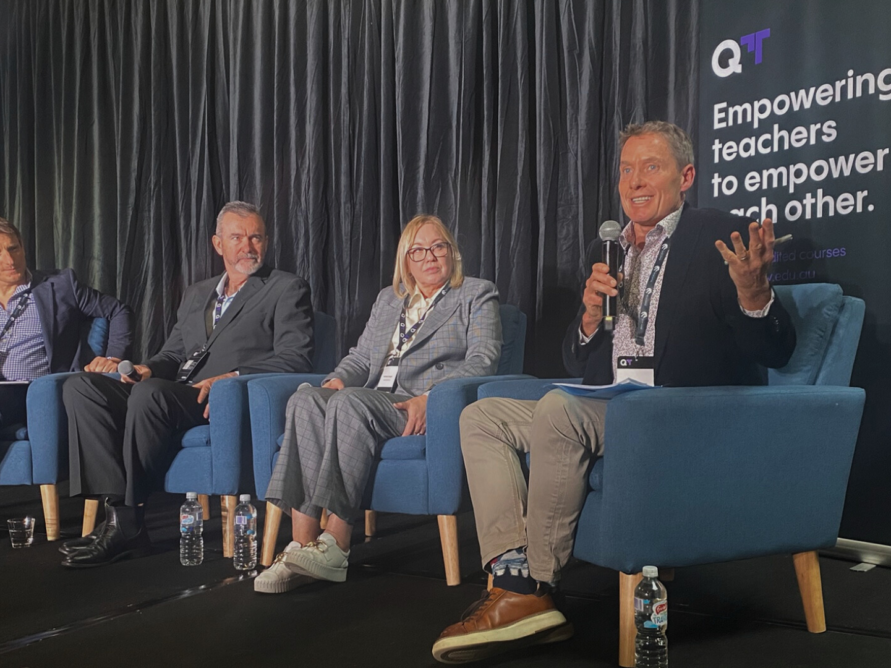
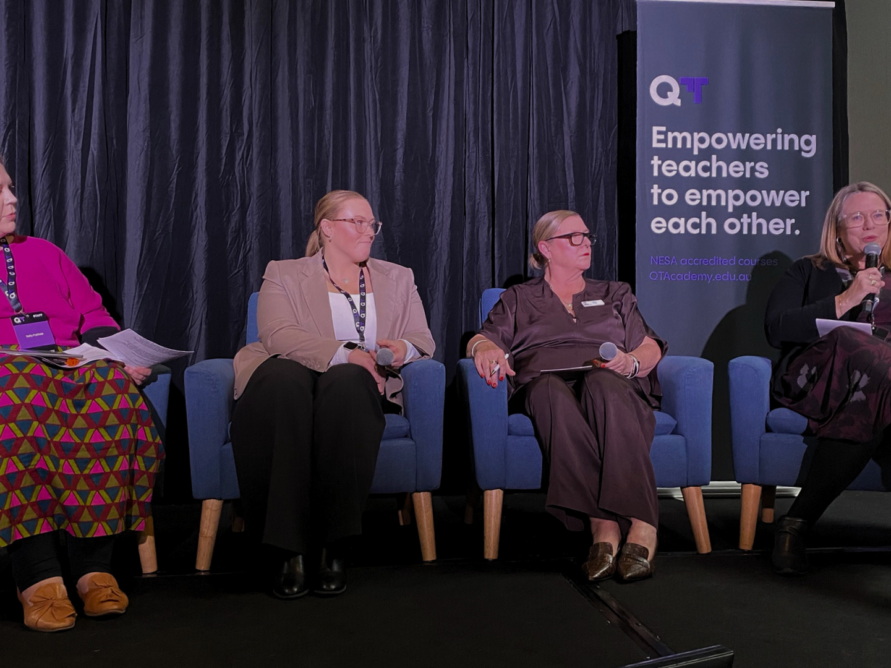
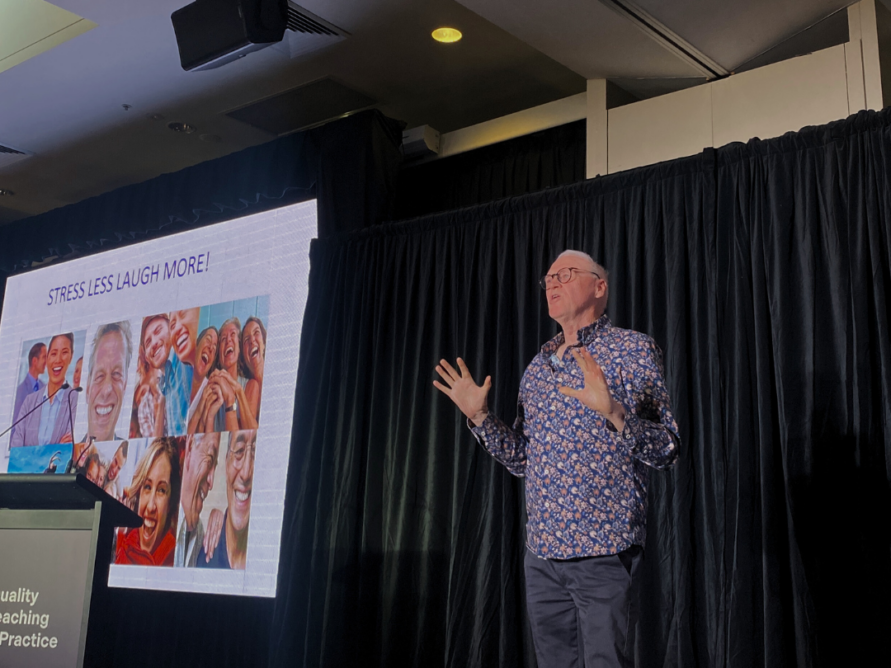
Valuable school and research presentations
We were also privileged to have more than 30 teachers and school leaders present their experiences and in-school research, including Lauriston Girls’ School in Victoria, Lismore Heights Primary School in far north New South Wales, Cessnock High School and Sydney Children’s Hospital School, providing valuable lessons for attendees.
Academics from both the University of Newcastle’s School of Education and the Teachers and Teaching Research Centre unpacked their diverse and groundbreaking educational research. They covered topics such as storytelling and movement in classrooms, history tours, mask-wearing, and the debate between decodable and levelled texts. The discussions on QT and explicit teaching and new research on QT Assessment Rounds were particularly thought-provoking.
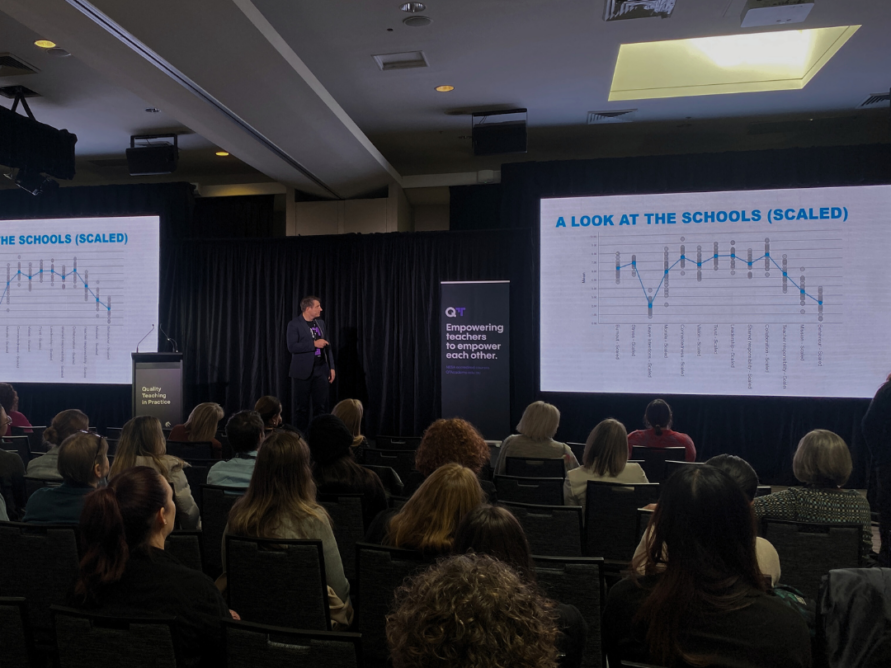
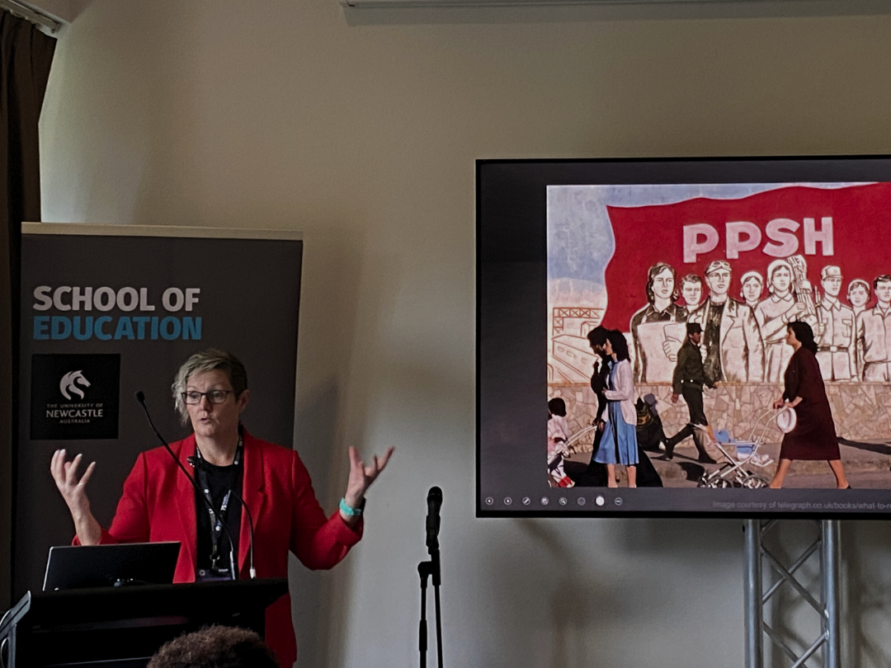
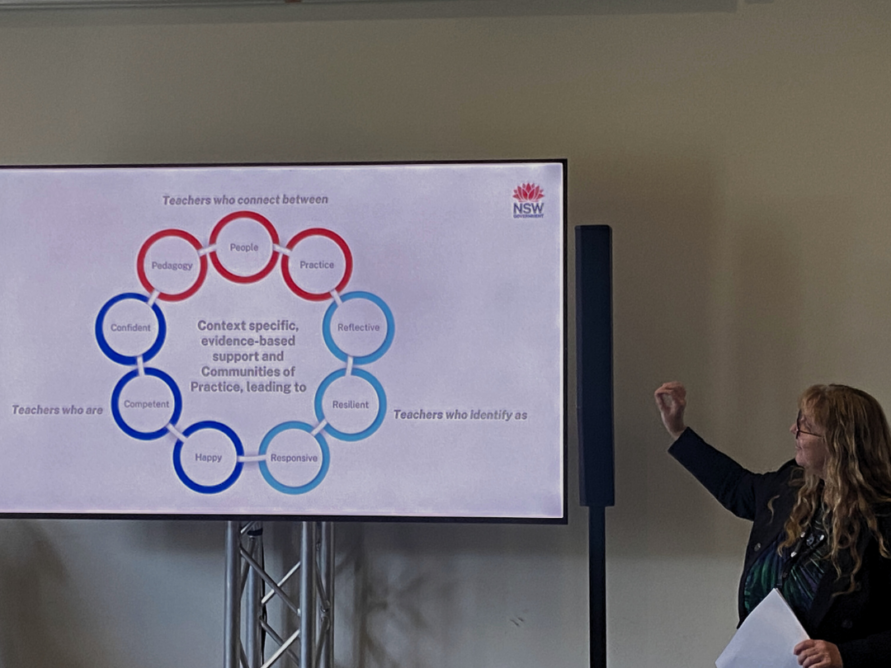
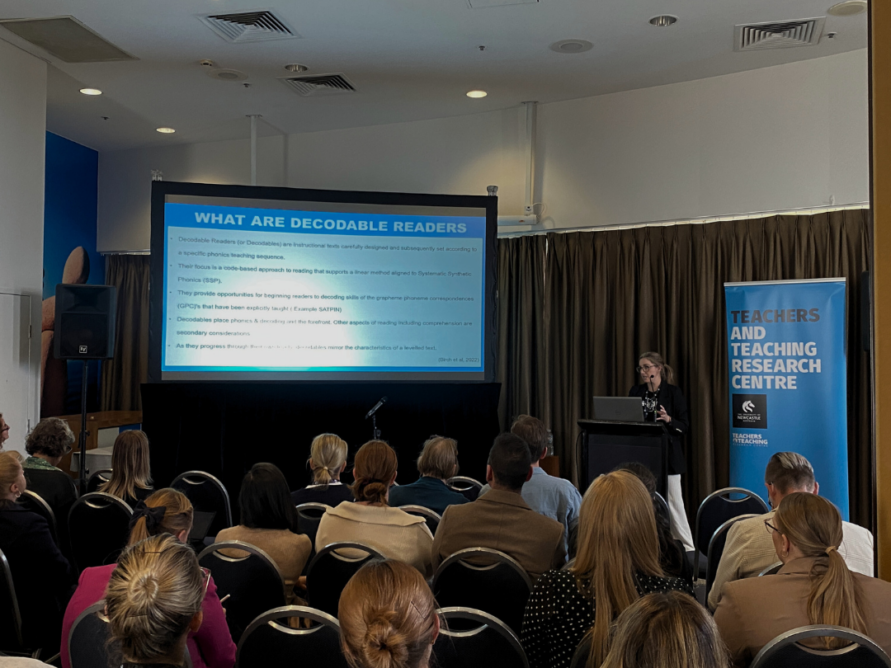
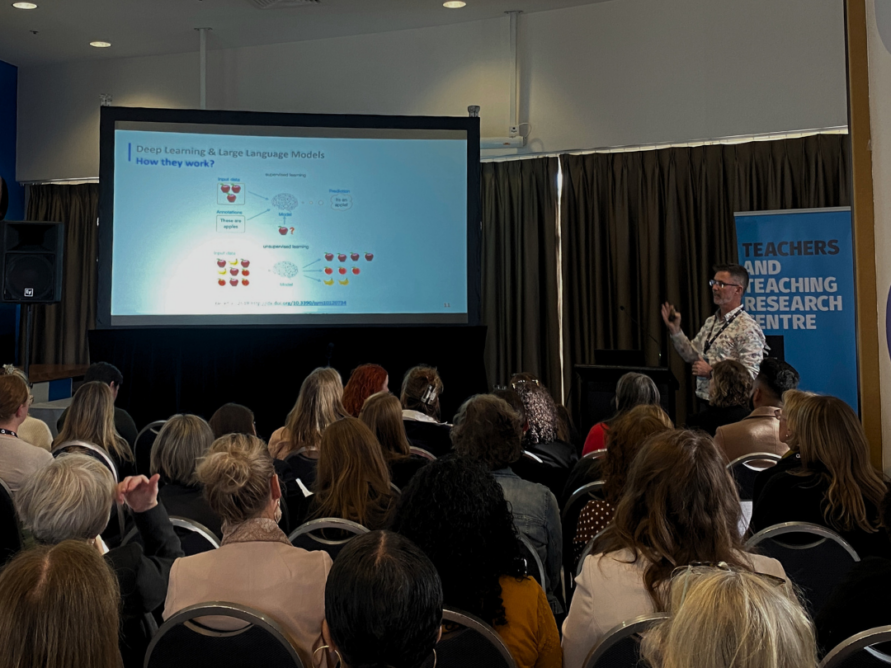
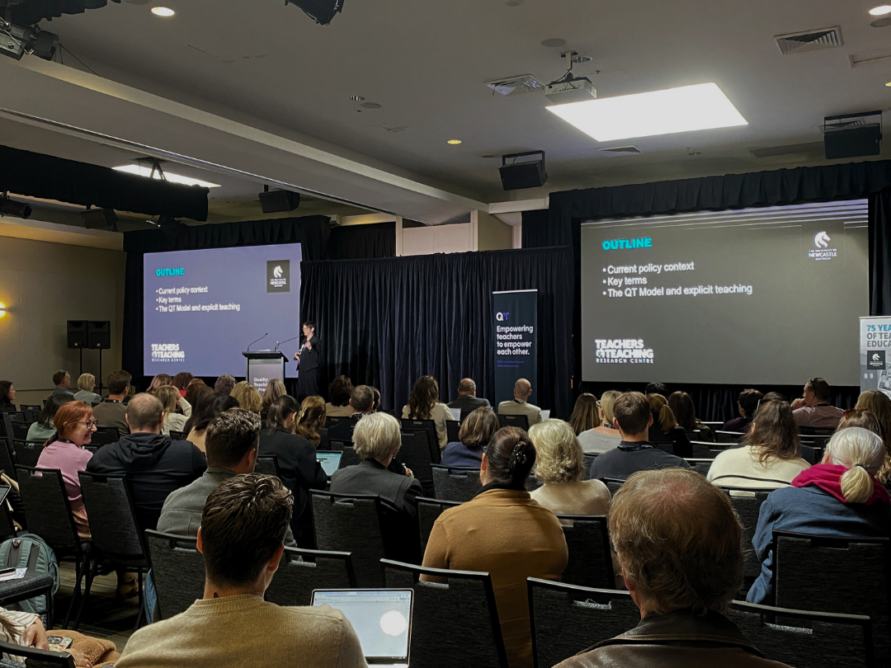
Who attended the 2024 Quality Teaching in Practice conference?
QTiP24 saw a diverse turnout, with delegates from a wide range of schools, universities, and educational institutions. Over 50 per cent of attendees were from primary and secondary schools, with significant representation from combined and schools for specific purposes. University-based delegates and other education professionals comprised the remaining 25 per cent.
With the conference held in Sydney, it was unsurprising that more than 80 per cent of delegates were based in NSW. Nonetheless, every mainland state and territory were represented. The presence of international delegates underscored the universal appeal and impact of the QT Model and QTR.
Finally, we had positive representation from all school sectors. Many delegates were from the government sector (60 per cent), while Catholic schools and independent schools made up over 16 per cent.
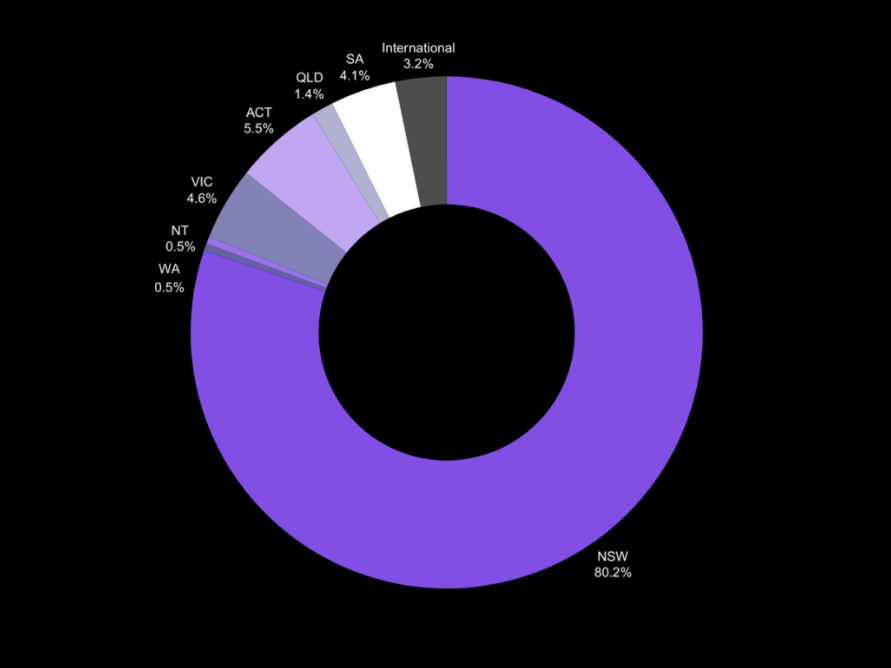
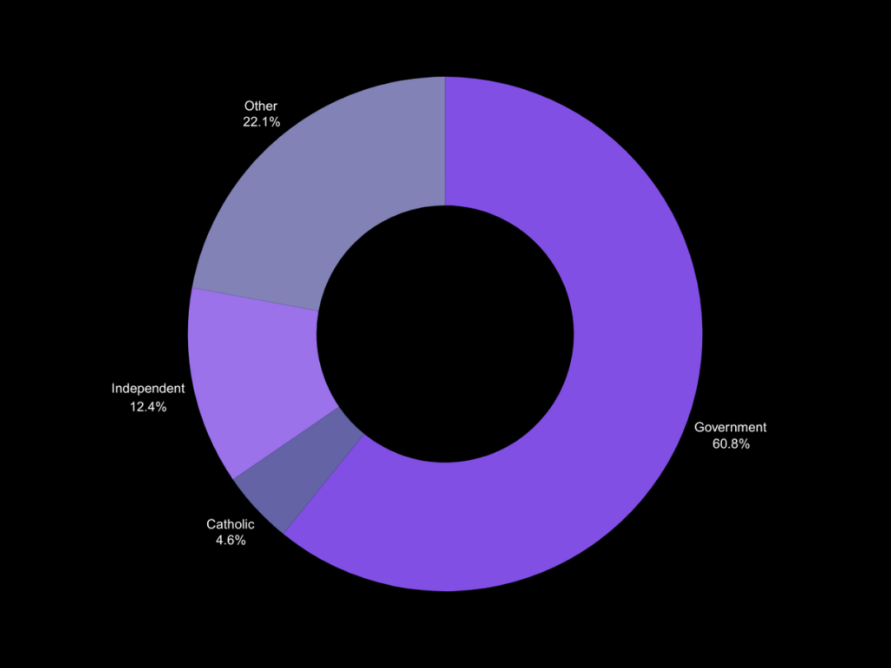
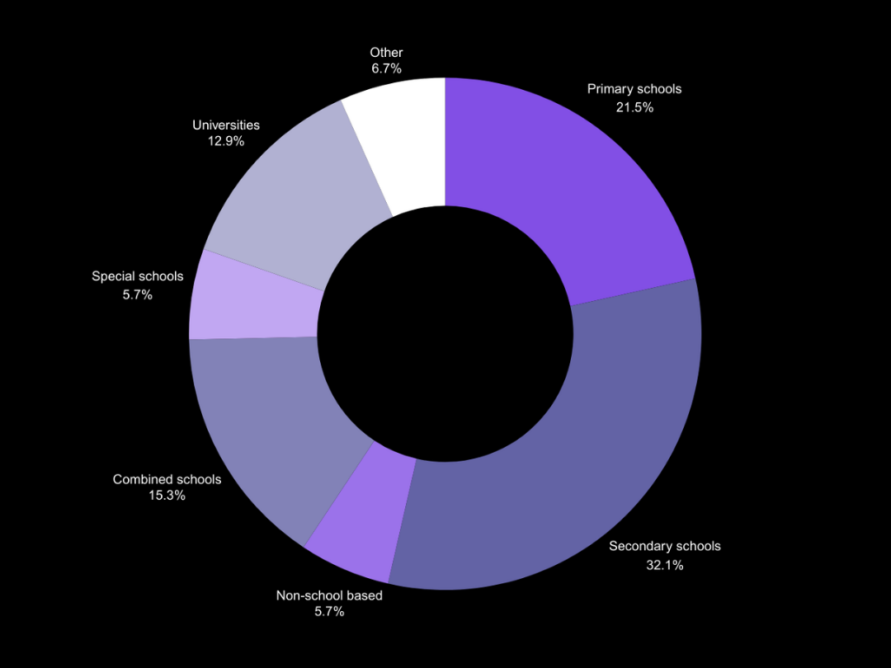
What did delegates have to say about the 2024 Quality Teaching in Practice conference?
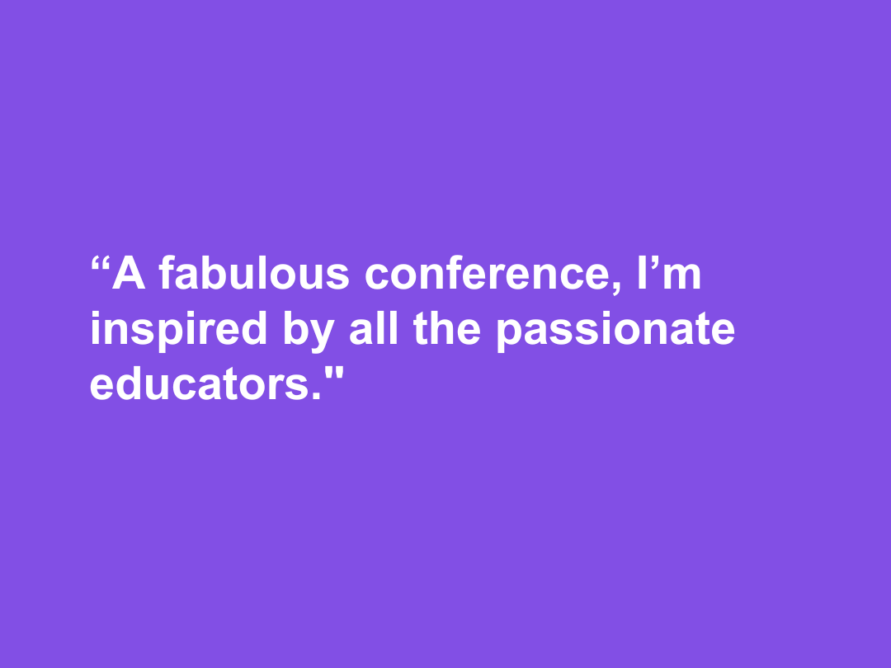
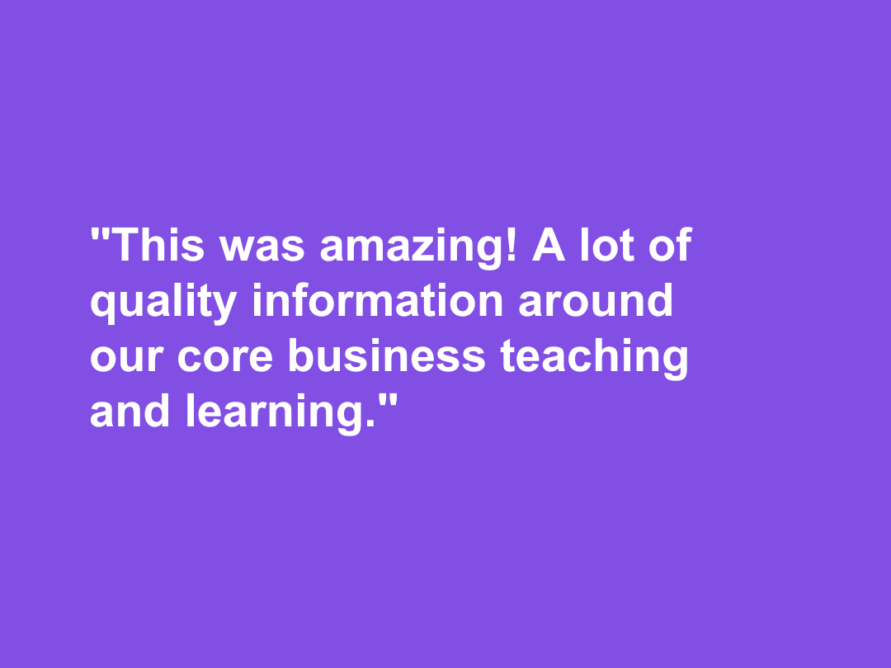



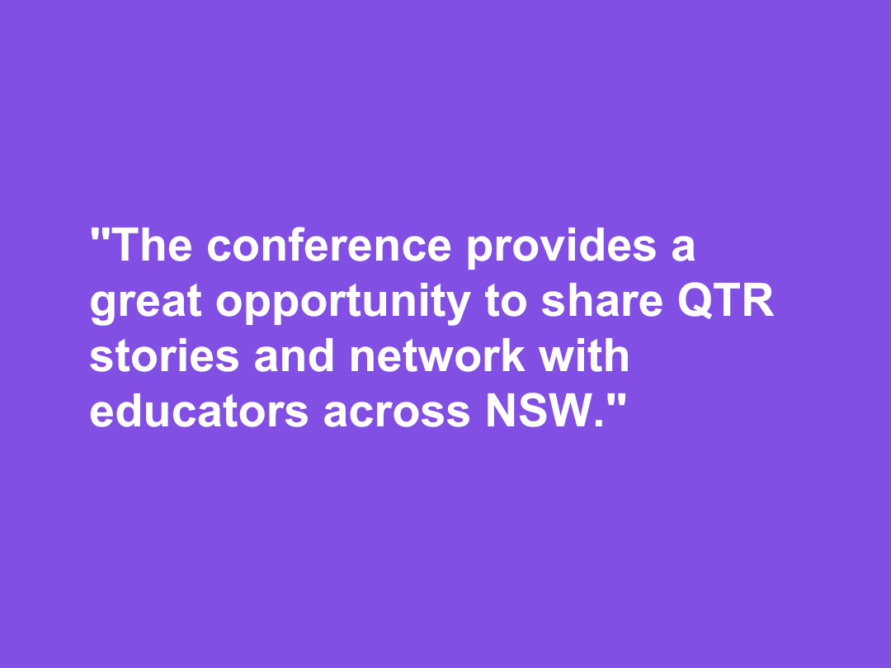
We extend our deepest gratitude to all attendees for making QTiP24 a remarkable event. Your participation and engagement were key to its success. As we reflect on the conference’s highlights, we are inspired to continue our collective journey towards enhancing the quality of teaching and learning. Let’s keep empowering each other and our students through evidence-based practice and collaborative professional development.


